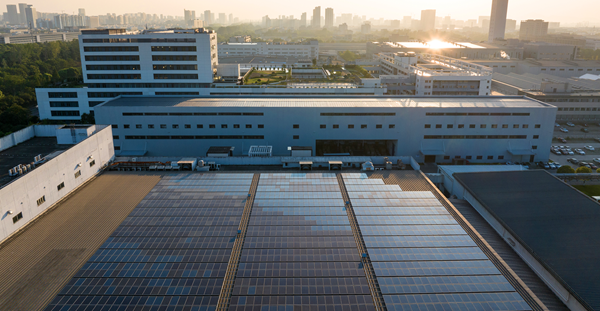Companies and governments play a crucial role in protecting and restoring biodiversity. Incorporating nature into business operations also brings numerous benefits. Greet Vanderheyden, Team lead Nature & Biodiversity at Arcadis, explains where to start.
The rich biodiversity on Earth is unique within our solar system and makes our world livable. However, it’s dangerously heading in the wrong direction. Land fragmentation, climate change, pollution, overexploitation, and invasive species are putting immense pressure on our precious biodiversity and the livability of our planet. The Global Risks Report 2024 even states that biodiversity loss and the collapse of ecosystems are the third largest threat humanity will face in the coming decade.
Business as usual has no future
The current economic systems - food, land and ocean use (1), infrastructure and the built environment (2), and energy and extractive industries (3) - are responsible for almost 80% of biodiversity loss. Yet, at least 40% of the global economy depends on nature and its services (Wageningen University & Research). Therefore, we need to move away from the current way of doing business and transition to a nature-positive economy if we want to secure our future.
Biodiversity strategy for businesses
A nature-positive economy is a win-win for nature, people, and businesses. By 2030, it can generate up to 10 trillion dollars in annual business opportunities and create 395 million jobs (World Economic Forum). In addition to financial benefits, businesses can ensure the security of their supply chain, become more resilient to the impacts of climate change, and have a competitive advantage with a nature-friendly reputation. But how do you embark on this necessary transition?
Prevention is better than cure. First and foremost, biodiversity loss should be avoided as much as possible on sites and within the value chain. Active improvement of biodiversity is also crucial (Net Gain). Think of restoration measures, nature-inclusive construction, and integrating nature-based solutions.
A case study:
One of our retail clients sought the assistance of Arcadis to develop a new site and assess biodiversity values before and after construction. We implemented green roofs, rain gardens, and a central water area. Compared to traditional engineering, this project cost less to comply with water regulations, making our sustainable approach financially advantageous for the client.
If nature conservation is not feasible on-site, investing in nature restoration outside the site can help balance or achieve a positive impact on biodiversity loss. Of course, this must be accurately quantified. Arcadis has developed the Biodiversity Net Gain Calculator (BNGC) to assess the current and potential biodiversity value of a company site or other location for accurate reporting.
In collaboration with an international NGO, we have also developed an approach to include investments in nature areas (such as support for land acquisition and/or biodiversity-enhancing interventions) in the biodiversity objectives of businesses. This ensures that every euro invested in biodiversity quantitatively contributes to No Net Loss or Net Gain. We have already completed a pilot project for an international food and beverage company with a production facility in Belgium.
The power of resilience
Nature has a unique ability to recover and is crucial in the fight against climate change. By working with nature rather than against it, we increase our chances of maintaining a livable planet. Businesses and industries play a key role and can truly make a difference by adopting No Net Loss or Net Gain objectives.
About our expertise
Arcadis specializes in supporting companies and organizations that want to invest in sustainability to enhance the long-term value and profitability of their business. We lead the way in biodiversity, with involvement in the EU Business @ Biodiversity Platform and the European Commission's Align project. With our expertise, we help companies measure and improve their impact on biodiversity and contribute to a biodiverse and resilient future.
Curious about how we can support you? Contact Greet Vanderheyden.





